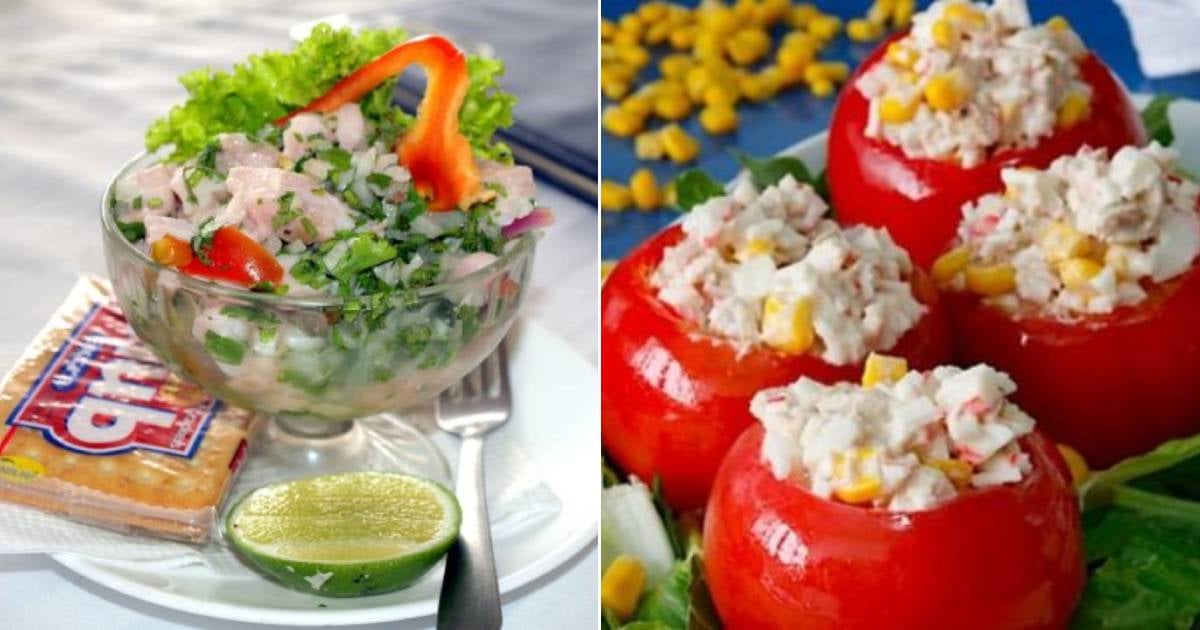
Related videos:
Amid one of the worst economic crises facing the island, the government portal Cubadebate published recipes that are not only beyond the reach of the average Cuban, but also present a distorted image of what culinary tradition means in the country.
The article titled "Flavor and Tradition: Pasta with Basil and Parsley, Stuffed Tomatoes, Fish Cocktail, and Glazed Oranges," published on December 25, suggests dishes that, beyond the limitations of ingredient availability, overlook the daily realities of most Cuban families.
In a context where obtaining rice, chicken, or eggs has become a daily odyssey, what sense does it make to talk about fresh basil, parsley, fish, and even oranges as if they were accessible to everyone? Apparently aware of this situation, the outlet advises, "if you can, do it; if not, save the recipe."
The article aims to invoke a spirit of tradition, but strays from historical reality. In Cuba, culinary traditions have been eroded by decades of shortages, adaptations, and forced sacrifices.
Dishes like chicken rice or Chinese fried rice remain in collective memory, but not on dining tables, and even less so in the variety suggested in the recipes from Cubadebate, the news portal of the Cuban government.
On this occasion, it publishes as recipes to inspire the end of the year "four proposals that combine fresh and simple ingredients."
Pasta with basil and parsley, stuffed tomatoes, seafood cocktail with a touch of mayonnaise and ketchup, and glazed orange for dessert.
Presenting these recipes with a nostalgic or aspirational tone might be suitable in another context, but in a country where citizens are forced to wait in long lines to buy basic food items and face exorbitant prices in informal markets, it comes across as insensitive.
The article even quotes José Martí in an attempt to legitimize the proposal, noting that "eating well... is the primary necessity for the good maintenance of both body and mind health."
However, the concept of "eating well" for the average Cuban is far removed from the luxury of aromatic ingredients and culinary techniques described in recipes. For many, eating well simply means having something on the plate.
The post was not shared on Facebook, and the comments section on the website clarifies that they reserve the right to select, as Cubans tend to become outraged by this type of article.
Frequently Asked Questions about Cubadebate Recipes and the Economic Situation in Cuba
Why have the recipes from Cubadebate faced criticism?
The recipes from Cubadebate have faced criticism for suggesting dishes that are out of reach for the average Cuban due to the economic crisis on the island. These dishes require hard-to-find ingredients, such as fresh basil, parsley, and fish, in a context where many Cubans struggle to obtain basic foodstuffs.
What impact does the economic crisis have on Cuban culinary tradition?
The economic crisis has eroded Cuba's culinary tradition. Many traditional recipes have been forgotten or adapted due to prolonged shortages. Nowadays, dishes like arroz con pollo are more memories than realities on Cuban tables, impacting the culture and culinary identity of the country.
How does the proposal from Cubadebate relate to the economic reality of Cuba?
The proposal from Cubadebate is out of touch with Cuba's economic reality. In a country where obtaining basic goods is a daily challenge, suggesting recipes that include ingredients deemed luxurious is seen as insensitive and inappropriate, especially amidst a severe food and economic crisis.
What does the criticism highlight about the use of historical quotes in the article from Cubadebate?
The critique points out that the Cubadebate article uses historical quotes, such as those from José Martí, to legitimize its culinary proposal, but overlooks the fact that "eating well" in the current context of Cuba simply means having something on the plate, rather than focusing on sophisticated ingredients and complex cooking techniques.
Filed under: